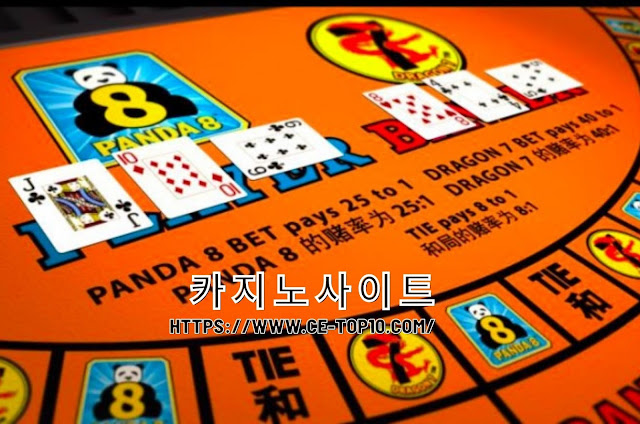Russians Engineer a Brilliant Slot Machine Cheat And Casinos Have No Fix
IN EARLY JUNE 2014, bookkeepers at the Lumiere Place Casino in St. Louis saw that few of their gambling 카지노사이트 machines had - only for two or three days - gone haywire. The public authority supported programming that forces such machines gives the house a proper numerical edge, so gambling clubs can be sure of the amount they'll acquire as time goes on - say, 7.129 pennies for each dollar played. However, on June 2 and 3, some of Lumiere's machines had let out undeniably more cash than they'd burned-through, in spite of not granting any significant big stakes, a distortion referred to in industry speech as a negative hold. Since code isn't inclined to unexpected attacks of frenzy, the main conceivable clarification was that somebody was cheating.
Club security pulled up the reconnaissance tapes and ultimately detected the offender, a dark haired man in his thirties who wore a Polo zoom up and conveyed a square earthy colored satchel. Not at all like most spaces cheats, he didn't seem to fiddle with any of the machines he designated, which were all more established models fabricated by Aristocrat Leisure of Australia. Rather he'd just play, pressing the buttons on a game like Star Drifter or Pelican Pete while stealthily holding his iPhone near the screen.
He'd leave following a couple of moments, then, at that point, return somewhat later to allow the game a subsequent opportunity. That is the point at which he'd luck out. The man would parlay a $20 to $60 interest into as much as $1,300 prior to changing out and continuing on to another machine, where he'd start the cycle once more. Throughout the span of two days, his rewards counted simply more than $21,000. The main odd thing about his conduct during his streaks was the manner in which he'd drift his finger over the Spin button for extended lengths before at long last punching it carelessly; ordinary spaces players don't stop between turns like that.
On June 9, Lumiere Place imparted its discoveries to the Missouri Gaming Commission, which thusly gave a statewide alarm. A few club before long found that they had been duped the same way, however frequently by unexpected men in comparison to the one who'd bilked Lumiere Place. In each example, the culprit held a cell near an Aristocrat Mark VI model gambling machine in no time before a run of favorable luck.
By analyzing rental-vehicle records, Missouri specialists recognized the Lumiere Place trickster as Murat Bliev, a 37-year-old Russian public. Bliev had flown back to Moscow on June 6, however the St. Petersburg–based association he worked for, which utilizes many agents to control gambling machines all throughout the planet, immediately sent him back to the United States to join another tricking group. The choice to redeploy Bliev to the US would end up being an uncommon slip up for an endeavor that is unobtrusively making millions by breaking a portion of the gaming business' most prized calculations.
From Russia With Cheats
Russia has been a hotbed of openings related misbehavior beginning around 2009, when the nation prohibited practically all betting. (Vladimir Putin, who was head administrator at that point, apparently accepted the move would lessen the force of Georgian coordinated wrongdoing.) The boycott constrained a great many club to sell their gambling machines at steep limits to whatever clients they could discover. A portion of those cut-rate spaces ended up in the possession of forgers anxious to figure out how to stack new games onto old circuit sheets. Others clearly went to Murat Bliev's supervisors in St. Petersburg, who were quick to test the machines' source code for weaknesses.
By mid 2011, gambling 온라인카지노 clubs all through focal and eastern Europe were logging occurrences in which openings made by the Austrian organization Novomatic paid out unrealistically enormous aggregates. Novomatic's architects could discover no proof that the machines being referred to had been altered, driving them to hypothesize that the con artists had sorted out some way to anticipate the openings' conduct. "Through designated and delayed perception of the singular game successions just as conceivably recording individual games, it very well may be feasible to supposedly distinguish a sort of 'design' in the game outcomes," the organization conceded in a February 2011 notification to its clients.
Perceiving those examples would require wonderful exertion. Gaming machine results are constrained by programs called pseudorandom number generators that produce puzzling outcomes by plan. Government controllers, for example, the Missouri Gaming Commission, vet the trustworthiness of every calculation before gambling clubs can convey it.
Be that as it may, as the "pseudo" in the name recommends, the numbers aren't really irregular. Since people make them utilizing coded directions, PRNGs can't resist the urge to be somewhat deterministic. (A genuine arbitrary number generator should be established in a wonder that isn't synthetic, like radioactive rot.) PRNGs take an underlying number, known as a seed, and afterward pound it along with different covered up and moving information sources - the time from a machine's inside clock, for instance - to create an outcome that seems difficult to figure. However, in the event that programmers can recognize the different fixings in that numerical stew, they might conceivably foresee a PRNG's yield. That course of figuring out turns out to be a lot simpler, obviously, when a programmer has actual admittance to a gaming machine's innards.
However, knowing the mysterious number juggling that a gaming machine uses to make pseudorandom results isn't sufficient to help programmers. That is on the grounds that the contributions for a PRNG change contingent upon the transient condition of each machine. The seeds are distinctive at various occasions, for instance, just like the information separated from the interior tickers. So regardless of whether they see how a machine's PRNG capacities, programmers would likewise need to break down the machine's ongoing interaction to recognize its example. That requires both time and significant processing force, and beating away on one's PC before a Pelican Pete is a decent way of drawing in the consideration of gambling club security.
The Lumiere Place trick showed how Murat Bliev and his companions got around that test. Subsequent to hearing what had occurred in Missouri, a club security master named Darrin Hoke, who was then head of observation at L'Auberge du Lac Casino Resort in Lake Charles, Louisiana, volunteered to examine the extent of the hacking activity. By meeting associates who had announced dubious gaming machine action and by inspecting their observation photographs, he had the option to distinguish 25 asserted agents who'd worked in club from California to Romania to Macau. Hoke additionally utilized lodging enlistment records to find that two of Bliev's associates from St. Louis had stayed in the US and ventured out west to the Pechanga Resort and Casino in Temecula, California. On July 14, 2014, specialists from the California Department of Justice kept one of those agents at Pechanga and seized four of his mobile phones, just as $6,000. (The man, a Russian public, was not arraigned; his present whereabouts are obscure.)
The PDAs from Pechanga, joined with insight from examinations in Missouri and Europe, uncovered key subtleties. As indicated by Willy Allison, a Las Vegas–based club security expert who has been following the Russian trick for quite a long time, the agents utilize their telephones to record around two dozen twists on a game they mean to swindle. They transfer that recording to a specialized staff in St. Petersburg, who investigate the video and work out the machine's example dependent on what they think about the model's pseudorandom number generator. At last, the St. Petersburg group sends a rundown of timing markers to a custom application on the employable's telephone; those markers cause the handset to vibrate generally 0.25 seconds before the usable should press the twist button.
"The ordinary response time for a human is about a fourth of a second, which is the reason they do that," says Allison, who is additionally the originator of the yearly World Game Protection Conference. The planned twists are not generally effective, yet they result in undeniably more payouts than a machine ordinarily grants: Individual tricksters commonly win more than $10,000 each day. (Allison takes note of that those agents attempt to keep their rewards on each machine to under $1,000, to try not to stir doubt.) A four-man group working numerous gambling clubs can acquire upwards of $250,000 in a solitary week.
Repeat Business
Since there are no gambling 바카라사이트 machines to cheat in his local country, Murat Bliev didn't wait long in Russia after his return from St. Louis. He made two additional outings to the US in 2014, the second started on December 3. He went directly from Chicago O'Hare Airport to St. Charles, Missouri, where he got together with three different men who'd been prepared to trick Aristocrat's Mark VI model gambling machines: Ivan Gudalov, Igor Larenov, and Yevgeniy Nazarov. The group of four intended to go through the following a few days hitting different club in Missouri and western Illinois.
Bliev ought to never have returned. On December 10, not long after security faculty spotted Bliev inside the Hollywood Casino in St. Louis, the four con artists were captured. Since Bliev and his partners had pulled their trick across state lines, government specialists accused them of connivance to submit extortion. The prosecutions addressed the main critical misfortunes for the St. Petersburg association; at no other time had any of its agents confronted indictment.





Comments
Post a Comment